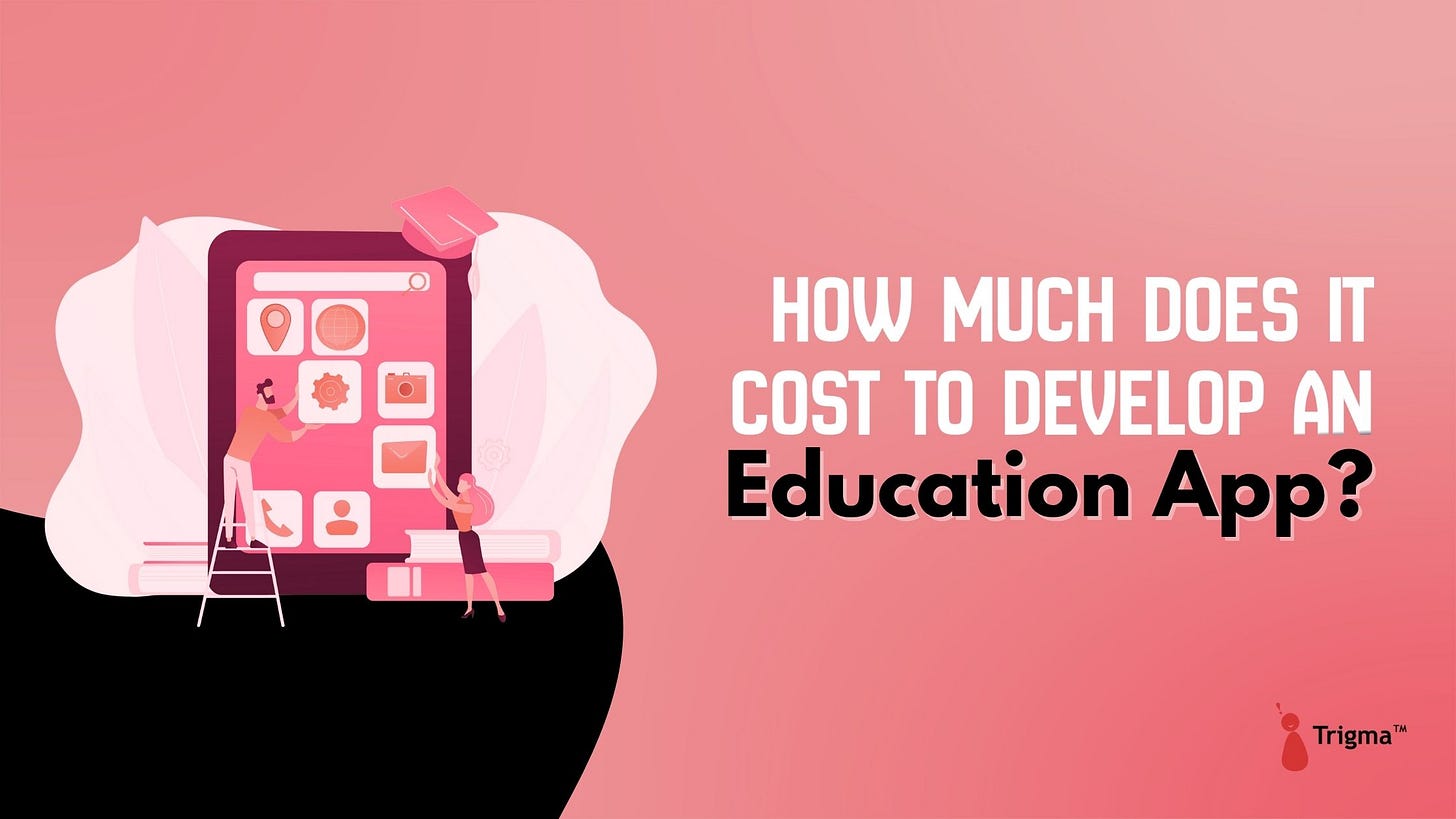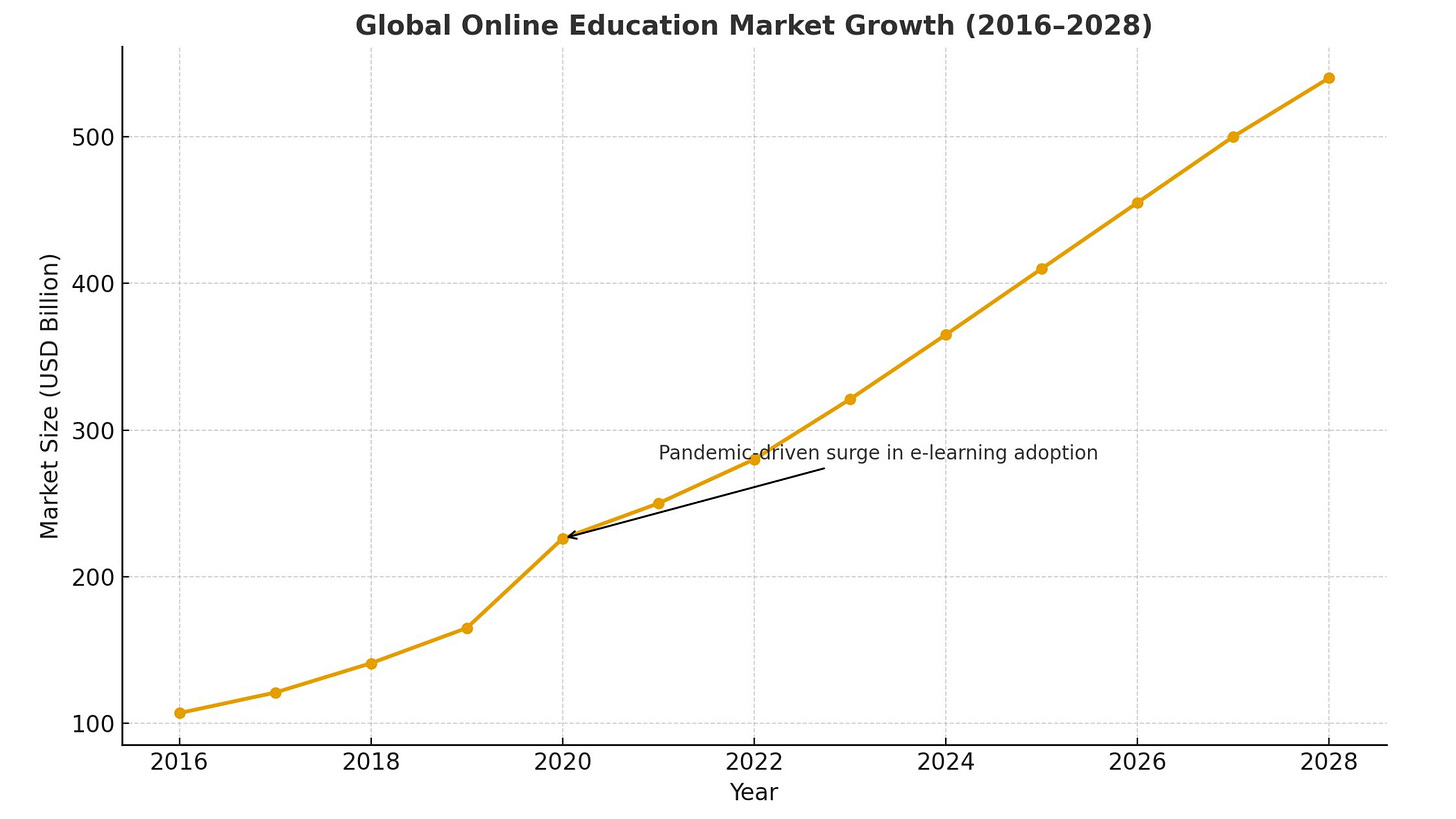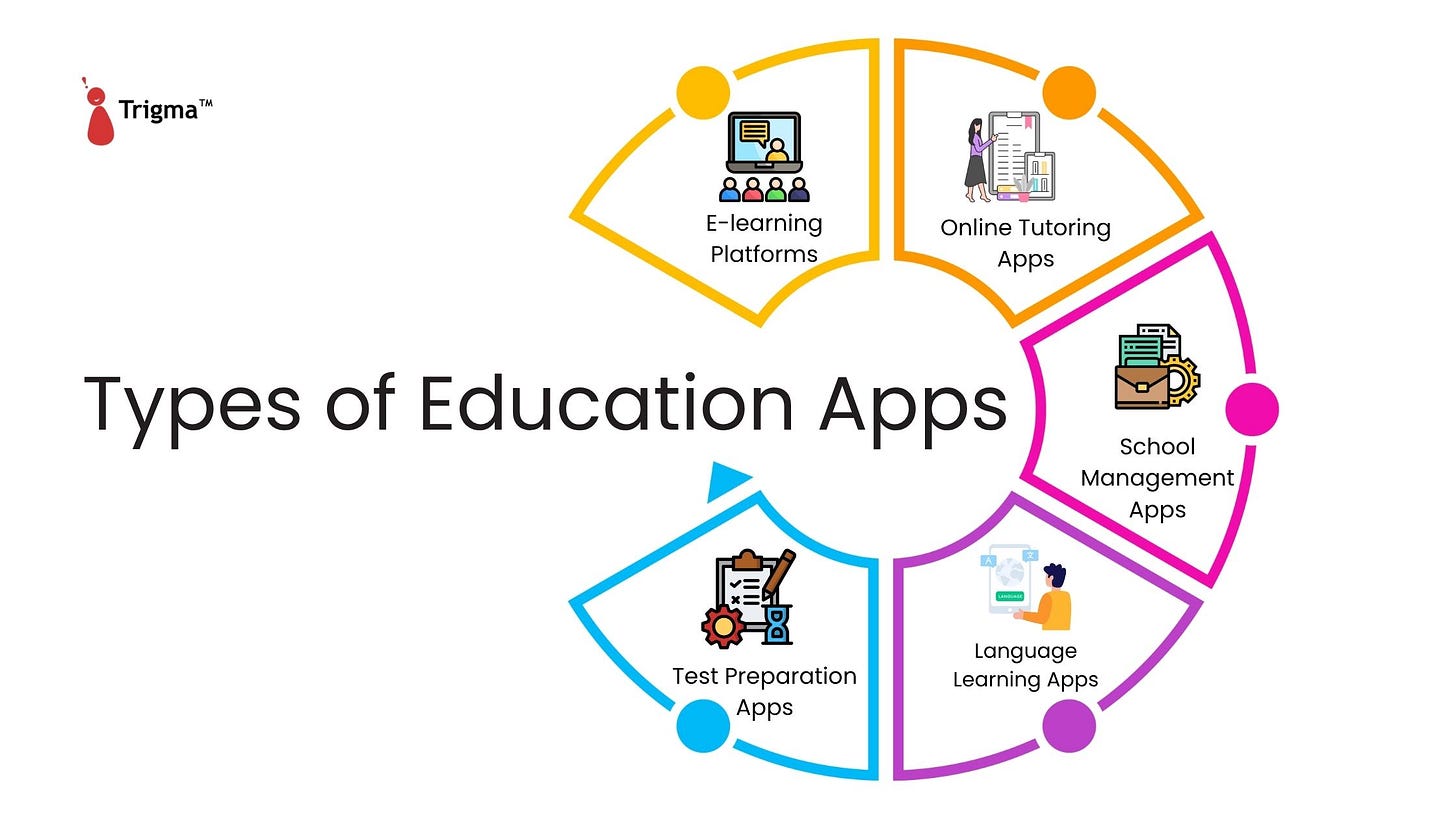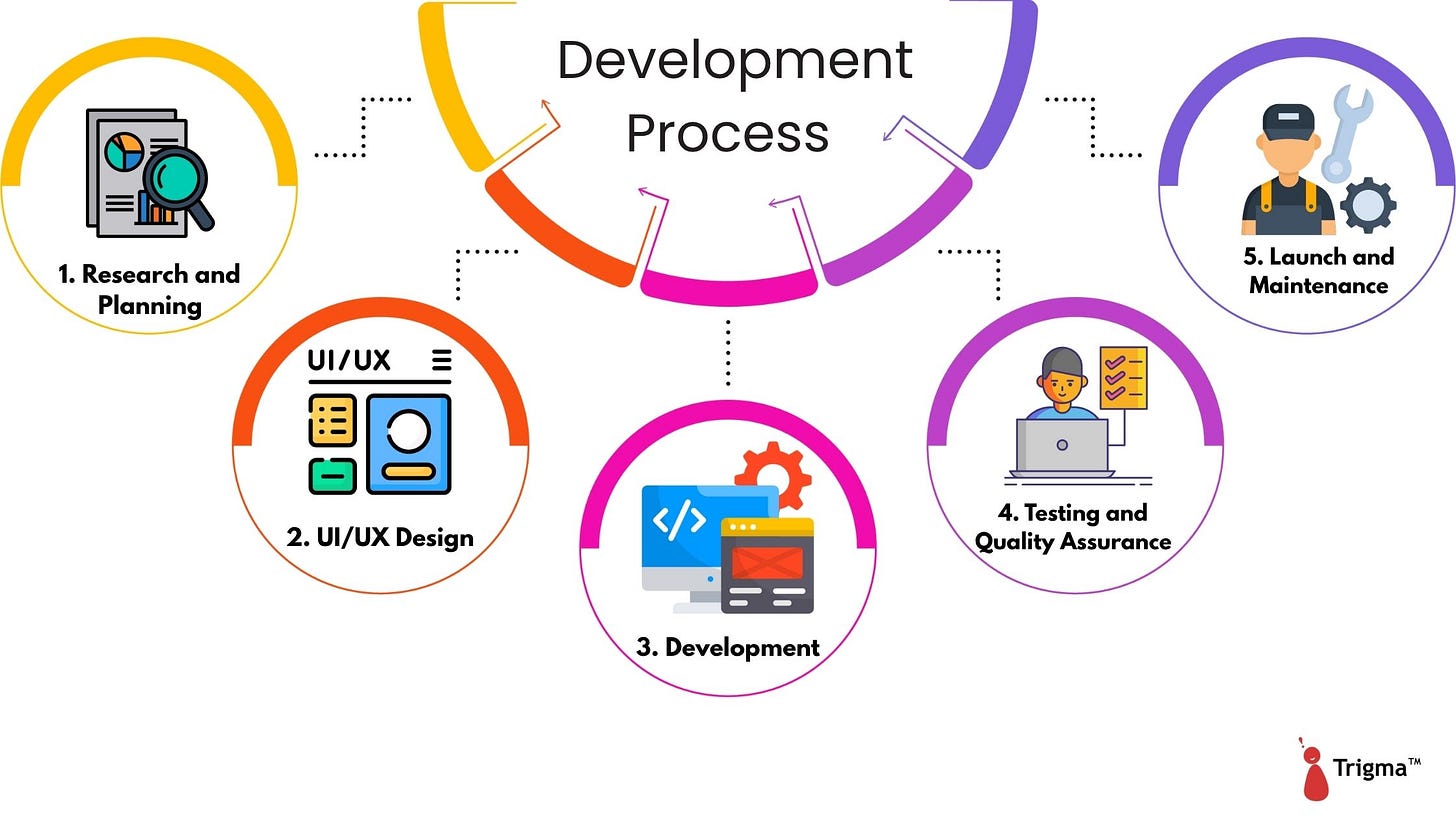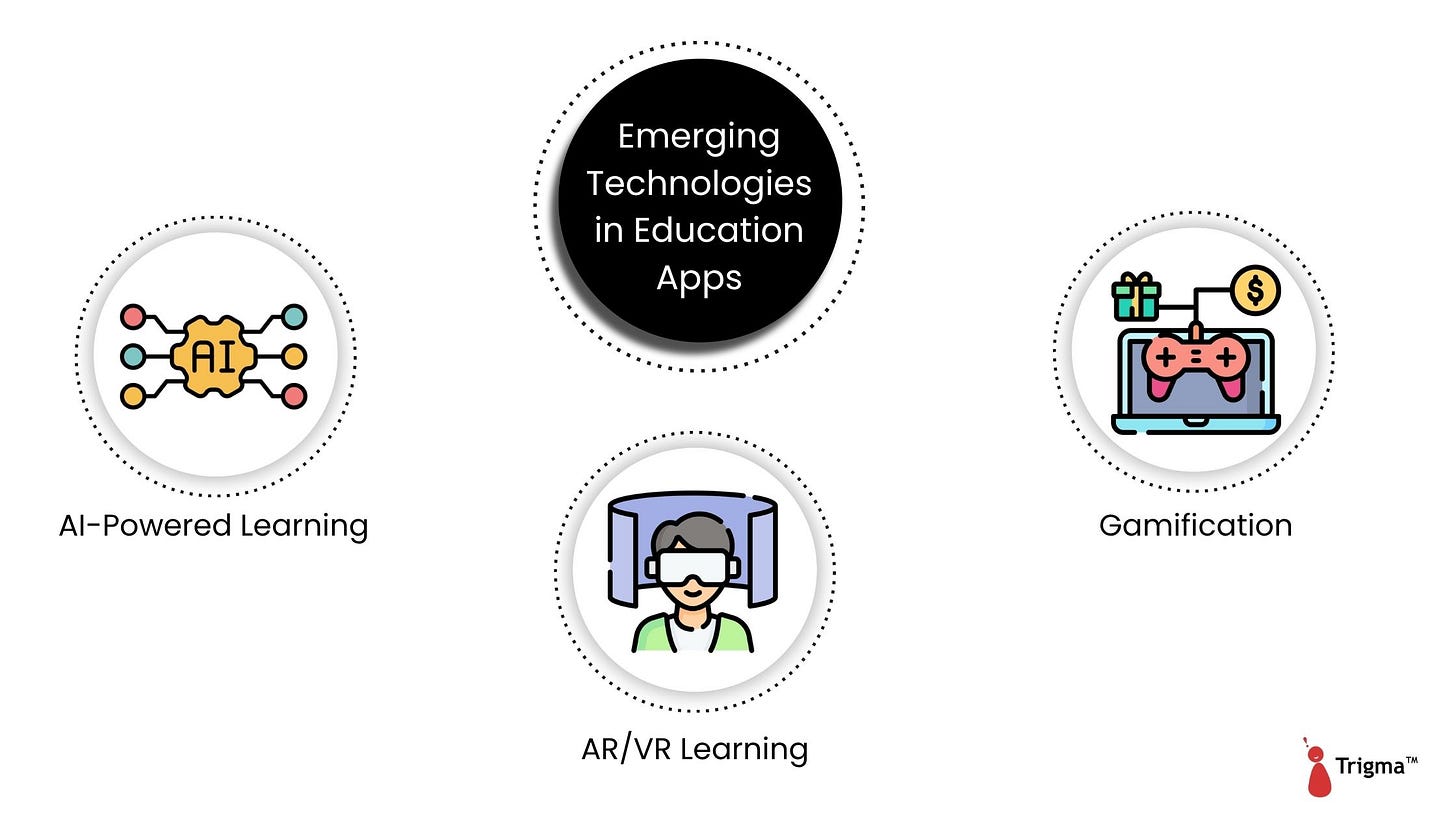How Much Does It Cost to Develop an Education App?
Cost to Develop an Education App in 2026
The education technology market has witnessed a massive boom in recent years. According to Statista, the global e-learning market is expected to reach over $400 billion by 2026, fuelled by the growing demand for flexible learning and interactive education platforms. From online tutoring to gamified learning, education apps are transforming how people learn across the world.
Global Online Education Market Growth (2016–2028): The global e-learning industry has grown rapidly, rising from $107 billion in 2016 to a projected $540 billion by 2028, driven by increased digital adoption and demand for flexible learning. (Sources: Statista, DemandSage, eLearning Industry)
But one question remains constant — how much does it cost to develop an education app?
Let’s explore the key factors, process, and cost breakdown involved in building a modern education app.
Overview of Education App Development
An education app is a digital tool that enables learning, training, and skill development through interactive features and content. These apps can be used by schools, universities, tutors, or businesses to deliver courses, conduct assessments, and track progress.
The reason education apps are so popular today is their accessibility and convenience. Learners can study anytime, anywhere — whether it’s mastering a language, preparing for exams, or taking professional training courses.
Types of Education Apps
Education apps come in many forms, depending on the target audience and learning goals. Here are the main categories:
1. E-learning Platforms
Apps like Coursera or Udemy allow users to enrol in online courses across various subjects.
2. Online Tutoring Apps
These apps connect students with qualified tutors for live sessions and homework help.
3. School Management Apps
Used by schools and colleges for attendance tracking, communication, and grade management.
4. Language Learning Apps
Examples include Duolingo or Babbel, which use gamification and repetition for better retention.
5. Test Preparation Apps
These apps help students prepare for exams like IELTS, GRE, or SAT with mock tests and study materials.
The Growing Market for Educational Apps
The COVID-19 pandemic accelerated digital transformation in education. Online learning became the new normal, and education apps proved essential for keeping students engaged remotely.
Market research shows that the education app market is expected to grow by over 8% annually in the next five years. With such potential, investing in an education app is both a strategic and profitable decision.
Key Factors Affecting Education App Development Cost
The total cost of developing an education app depends on several variables:
App complexity – The number of features and the technology stack used.
Platform – Building for iOS, Android, or both can change the budget.
Design – A visually appealing and user-friendly design requires skilled designers.
Integration – Third-party tools like payment gateways or video APIs add costs.
Development team location – Developers in North America charge more than those in Asia or Eastern Europe.
Stages of Education App Development Process
1. Research and Planning
Understanding the target audience and defining core features.
2. UI/UX Design
Creating a seamless and engaging user experience.
3. Development
Frontend and backend coding to build app functionality.
4. Testing and Quality Assurance
Ensuring the app runs smoothly without bugs.
5. Launch and Maintenance
Deploying the app to stores and providing regular updates.
Average Cost Breakdown of Education App Development
Here’s a general idea of what you can expect in terms of development costs:
These are rough estimates and can vary based on design, features, and region.
Hidden Costs You Should Consider
App Store Fees – Apple and Google charge developer account fees.
Maintenance – Regular updates, security patches, and new feature additions.
Marketing – Promoting your app to attract users.
Licensing – Costs for using premium APIs or content rights.
Essential Features of a Successful Education App
To make your app stand out, consider including the following:
User registration and secure login
Course management tools
Interactive video sessions
Real-time chat or Q&A
Gamification and progress tracking
Push notifications
Payment and subscription management
Emerging Technologies in Education Apps
AI-Powered Learning: Adaptive learning experiences based on user progress.
AR/VR Learning: Immersive classrooms and simulations.
Gamification: Keeps learners motivated and engaged.
UI/UX Considerations for Education Apps
A well-designed app enhances engagement and learning. Accessibility should be a priority — ensuring that users with different needs can navigate the app effortlessly.
Monetisation Models for Education Apps
You can generate revenue through:
Subscription Plans
Freemium Access
In-App Purchases
Advertisements
Challenges in Education App Development
Developers often face challenges such as maintaining user privacy, ensuring data security, and keeping learners engaged through consistent updates and innovative features.
Why Partnering with Trigma is a Smart Choice
Trigma is a trusted technology partner known for its expertise in app development services. With a team of experienced developers, designers, and strategists, Trigma provides end-to-end app solutions — from ideation to post-launch support.
What sets Trigma apart is its commitment to innovation and customisation. The company has a proven record of building robust, scalable, and user-friendly apps tailored to specific educational needs. Whether you want an e-learning platform or a tutoring app, partnering with Trigma ensures reliability and quality.
Conclusion
The cost of developing an education app depends on the scope, features, and technology you choose. However, one thing is certain — investing in a well-built education app can yield long-term rewards.
By collaborating with an experienced development company like Trigma, you can create a powerful digital learning solution that engages users and drives growth.
FAQs
1. What is the average time to develop an education app?
It usually takes between 4 to 9 months, depending on the app’s complexity.
2. Can I create an education app on a limited budget?
Yes, you can start with a basic version (MVP) and expand as your user base grows.
3. What is the most expensive part of app development?
The most costly aspects are backend development, advanced features, and design.
4. How can I make my education app profitable?
Use effective monetisation strategies like subscriptions or premium content.
5. Why choose Trigma for education app development?
Trigma combines technical expertise, creative design, and strategic insights to deliver top-quality educational apps.


